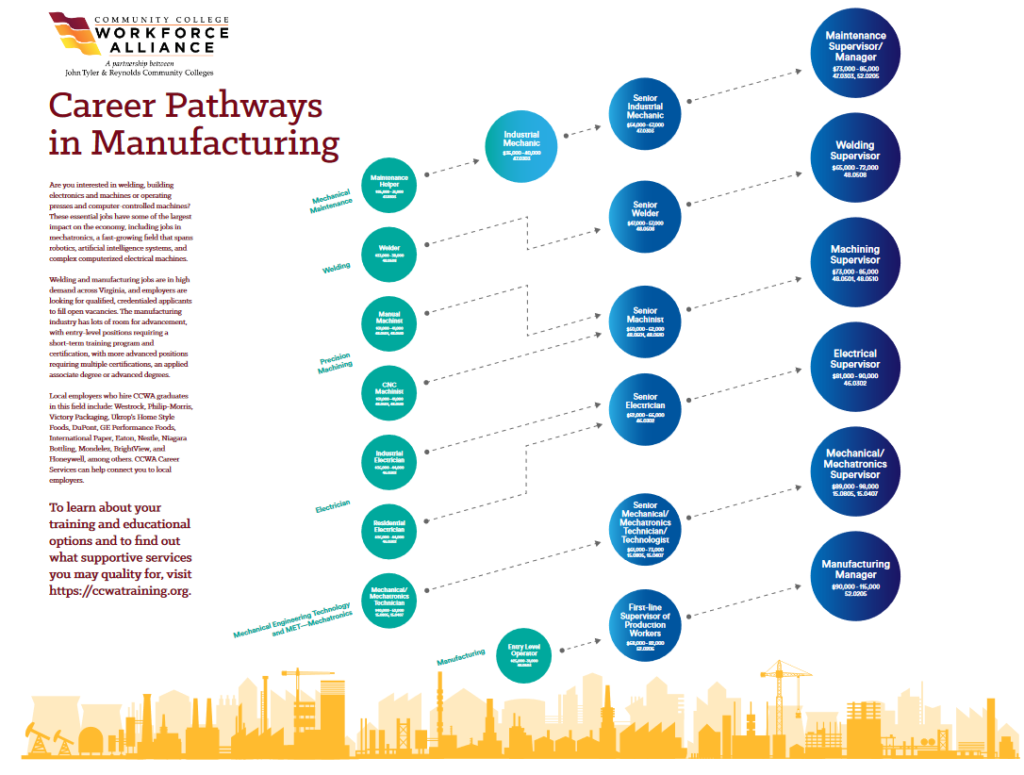Some of the most in-demand careers in Virginia are part of the welding and manufacturing industries. If you’re less interested in sparks and heavy metal, manufacturing may be a good direction to consider. One of the most entry-level workforce credentials you can earn in this space is an MT-1. It sounds a little bit like a droid from Star Wars, but the manufacturing technician level one (MT-1) certification can grant you access to an industry making $36,000-48,000 out of the gate.
The manufacturing field helps kick off the supply chain by producing things we use every day, from the keys on our keyboard to the food on our plates. Across the commonwealth, there are manufacturers looking for talent, and Virginia’s Community Colleges and FastForward help to train folks for those open jobs.
The MT-1 training and student experience
Depending on the community college you study with, you can earn a variety of certifications while you’re training. The big goal is earning the MT-1, but you can also earn OSHA, First Aid and CPR. Students who enroll in this training learn a variety of skills including safety, electrical and chemical fundamentals, manufacturing techniques, mechanics and manufacturing processes and controls.
Additionally, students will hone their spatial reasoning and problem-solving abilities that help them troubleshoot on the job after they earn their certification. While a portion of the class is book work and lectures, students also get hands-on practice with simulated machinery to bring what they’ve learned in the text book to life.

Advancing in a manufacturing career
By starting a career in the manufacturing industry, you’re opening yourself up to dozens of options and focus areas to choose from.
In the above example, which was produced by CCWA for the Richmond region, you’ll see that you can focus on manufacturing maintenance, welding, precision machining, electrical, manufacturing technology and basic manufacturing. Every arm of this career map has upward mobility, and as you learn new skills, earn more credentials and show mastery in your craft, you can advance and get more responsibility and higher pay.
If you’re looking to get started in the field, your local community college likely has training to get you off on the path forward.
To learn more about manufacturing and welding programs where you live, visit our website and contact your local career coach to get started.
